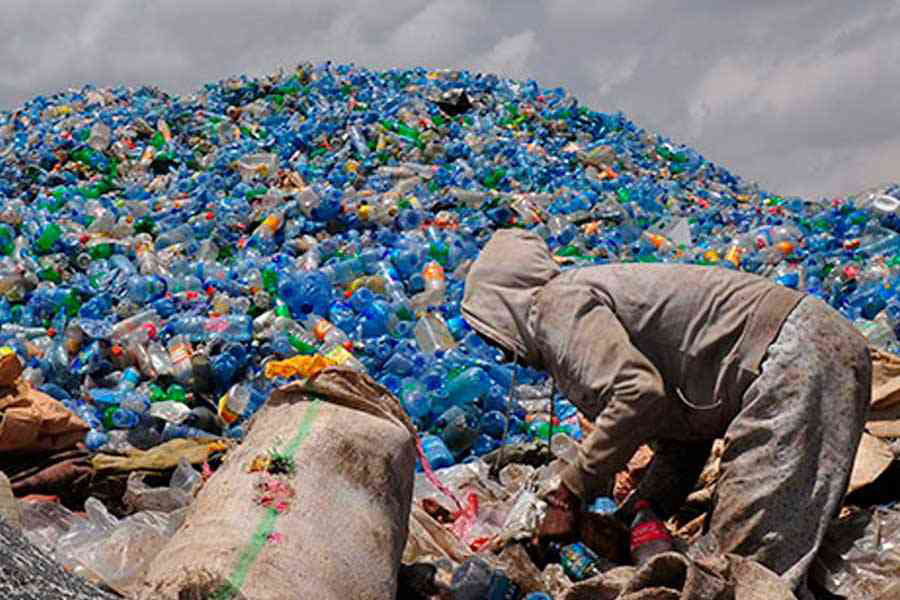
Radar | Jun 15,2019
As the manufacturing sector struggles with a panoply of issues, SBG Industry Plc, the bottler behind "Arki" water brand, has completed a five-million-dollar expansion project to boost its marketing and production capabilities. Within a couple of months, the company is getting ready to launch a new juice brand "Smiley," with its executives planning to increase the market presence
SBG management anticipates long-term growth. With plans to begin operation with mango-flavoured drinks, Dagmawi Getachew, the plant manager, hopes to gradually expand the flavours to guava.
He said that although operations were initially planned to begin last year, they were delayed due to bureaucratic and security issues. He said this product diversification is critical in a highly competitive water industry that threatens their market share.
"Relying solely on the water business isn't sustainable," Dagmawi told Fortune. "We needed to diversify."
The new machinery, imported from Europe and India, includes bottle washers, fillers, corkers, and extractors, installed at the plant. Once operational, the new facility will add 100 employees to the existing workforce of 150, substantially increasing the company’s production capacity. When fully equipped, the company executives plan to produce 24,000 bottles in an hour.
The company plans to distribute 60pc of its products in Addis Abeba, with the remaining 40pc targeted at regional markets. SBG, which holds less than a six percent share of the local water market, embarked on this expansion despite facing difficulties that have undermined its production and market position.
Dagmawi highlighted severe power outages and security challenges as major obstacles. Although a generator was considered as a solution to power issues, rising fuel prices forced the company to reconsider. The company faced further setbacks due to operational halts and limited market access, reducing its capacity to less than 20pc. Recent improvements have increased capacity to 40pc, but ongoing challenges require careful navigation.
Operating at only a fifth of its capacity, SBG's woes illustrate the struggles of the sector, grappling with a competitive market and limited resources. The company’s plant, covering 15,000Sqm in Oromia Regional State, has a daily production capacity of 500,000 water bottles, but recent events have hindered full utilisation.
Founded in 2016 by Henock Mulat and his family, SBG Industry Plc has been in the industry for over eight years. It was established with a 40 million Br capital. However, difficulties in sourcing raw materials led to intermittent operations, prompting Henock to transfer ownership to the Saudi-owned Seqa Group, for 200 million Br. For three decades, Seqa has been a hallmark in water production and is owned by more than 10 companies and joint ventures.
Dereje Terefe, the deputy manager, noted that the new management, with easier access to foreign currency, has revived the factory. He expressed optimism about the new juice line, citing the Group's experience as an advantage.
A recent UN study revealed a decline in the manufacturing sector’s contribution to GDP, which fell by 1.5pc to 4.6pc in 2022. The report cited loose monetary policy, supply chain bottlenecks, and security challenges as key issues affecting the sector.
Bottled water manufacturers have consistently opposed the excise tax since its imposition, citing they operate in an unfavourable environment. Their frustration deepened with the abrupt introduction of looming excise tax stamps, which will further burden the industry.
According to Getnet Belay, president of the Beverage Industries Association, the water manufacturing sector has been facing severe economic challenges, including foreign currency shortages, lack of market access, and raw material shortages. The industry’s market share has dwindled, and companies are struggling to keep up with skyrocketing costs, exacerbated by the controversial excise tax stamp system.
The Ministry of Industry officials are hopeful some of the issues will be addressed.
Tilahun Abay, head of strategic affairs at the Ministry of Industry, acknowledged that access to finance and foreign exchange remains a significant challenge. He expressed hope that new macroeconomic policies would address these issues and bring about positive changes in the industry.
"We expect better results for the sector going forth," he said.
Economist Arega Shumete (PhD) foresees long-term sustainability for the industry with economic reform. However, he observes that the market equilibrium is in turbulence and the financial industry is not yet meeting demands.
"It'll be unstable for a short while", he told Fortune.
He emphasised the importance of business diversification in mitigating risks and stressed the need to increase export diversification to improve foreign exchange earnings. He also highlighted external challenges such as peace and security issues that need to be overcome for the manufacturing sector to thrive and contribute to GDP.
PUBLISHED ON
Aug 11,2024 [ VOL
25 , NO
1267]

Radar | Jun 15,2019

My Opinion | Dec 15,2024

Commentaries | Aug 16,2025

Fortune News | May 23,2021

Fortune News | Feb 15,2020

Radar | May 18,2019

Fortune News | Jun 20,2020

Fortune News | Feb 08,2020

Fortune News | Mar 30,2024

Radar | Oct 16,2021

Dec 22 , 2024 . By TIZITA SHEWAFERAW
Charged with transforming colossal state-owned enterprises into modern and competitiv...

Aug 18 , 2024 . By AKSAH ITALO
Although predictable Yonas Zerihun's job in the ride-hailing service is not immune to...

Jul 28 , 2024 . By TIZITA SHEWAFERAW
Unhabitual, perhaps too many, Samuel Gebreyohannes, 38, used to occasionally enjoy a couple of beers at breakfast. However, he recently swit...

Jul 13 , 2024 . By AKSAH ITALO
Investors who rely on tractors, trucks, and field vehicles for commuting, transporting commodities, and f...

Oct 25 , 2025
The regulatory machinery is on overdrive. In only two years, no fewer than 35 new pro...

Oct 18 , 2025
The political establishment, notably the ruling party and its top brass, has become p...

Oct 11 , 2025
Ladislas Farago, a roving Associated Press (AP) correspondent, arrived in Ethiopia in...

Oct 4 , 2025
Eyob Tekalegn (PhD) had been in the Governor's chair for only weeks when, on Septembe...